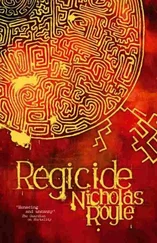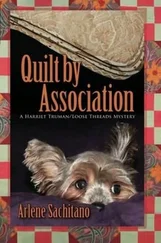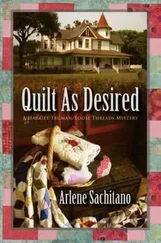Nicholas Royle - Quilt
Здесь есть возможность читать онлайн «Nicholas Royle - Quilt» весь текст электронной книги совершенно бесплатно (целиком полную версию без сокращений). В некоторых случаях можно слушать аудио, скачать через торрент в формате fb2 и присутствует краткое содержание. Год выпуска: 2011, Издательство: Myriad Editions, Жанр: Современная проза, на английском языке. Описание произведения, (предисловие) а так же отзывы посетителей доступны на портале библиотеки ЛибКат.
- Название:Quilt
- Автор:
- Издательство:Myriad Editions
- Жанр:
- Год:2011
- ISBN:нет данных
- Рейтинг книги:4 / 5. Голосов: 1
-
Избранное:Добавить в избранное
- Отзывы:
-
Ваша оценка:
- 80
- 1
- 2
- 3
- 4
- 5
Quilt: краткое содержание, описание и аннотация
Предлагаем к чтению аннотацию, описание, краткое содержание или предисловие (зависит от того, что написал сам автор книги «Quilt»). Если вы не нашли необходимую информацию о книге — напишите в комментариях, мы постараемся отыскать её.
Quilt — читать онлайн бесплатно полную книгу (весь текст) целиком
Ниже представлен текст книги, разбитый по страницам. Система сохранения места последней прочитанной страницы, позволяет с удобством читать онлайн бесплатно книгу «Quilt», без необходимости каждый раз заново искать на чём Вы остановились. Поставьте закладку, и сможете в любой момент перейти на страницу, на которой закончили чтение.
Интервал:
Закладка:

What convinces me that he is having a breakdown? It is not when he goes on to outline the beautiful bareness, as he calls it, of his theory. Nor, perhaps more surprisingly, is it a few minutes later, when he drifts off into what, to anyone else, might seem demented singsong.
It is a question of veils, capes, sheets, shrouds, cloaks, blankets, quilts, mantles.
It’s too crazy for a cult. He realises that. And it might indeed remain for centuries illegible, incomprehensible or even imperceptible to the general public.
But a ray doesn’t constitute an analogy or ‘lively metaphor’ for a ghost. Rather, it is the other way round: it is necessary to think spectrality starting from the ray . There is no ghost without a trace of the ray. Everything that might be identifiable with the singularity of a living cape or gliding sheet comes back to this. Put crassly, the pallid underside of a ray is not like the bed-sheet whiteness of a spectre. The ray is at the origin. It’s the originary spook. Plato was already onto that, in the ray haunting Socrates and Meno. What people call the Gothic is a kind of anamorphic manifestation of the effects of the ray. The whole sprawling industry of ghosts and vampires is, in truth, largely a ray-phenomenon. Any moderately reflective reader might notice the importance of cloaks, mantles, shrouds, shawls and so on in the Gothic novel. It is necessary, however, to realise how integrally, how inextricably, this motif is folded into the figure or property of the ray, the living blanket or quilt. The bat is a red herring, in fishy phrase, dried and smoked, tried and tested, a making small and manageable of what is neither. What haunts is of greater scope, more minatory and dangerous, all-enfolding, from another element.
Broadly speaking, the manta and the vampire (or ‘vampyre’, in its earliest orthography) emerge at the same period, in the first half of the eighteenth century. That the latter (a fantasy) seems to owe something to the former (the real) might veritably be classed a no-brainer. We don’t know when exactly the word ‘manta’ (meaning ‘blanket’ or ‘cloak’) was first used to designate the rays now linked with that name, but it appears to have been originally used interchangeably with ‘quilt’. In Socratic spirit it is tempting to construe ‘quilt’ here in its other sense, namely as a reference to that point in the throat at which swallowing becomes involuntary, but Antonio de Ulloa in his Voyage to South America (1758) writes of the ways in which the negro slaves off the coast of Panama are fastened with ropes and forced to fish for pearls, ‘and the mantas, or quilts, either press them to death by wrapping their fins about them, or crush them against the rocks by their prodigious weight’. This is as shocking an evocation of the reality of slavery as it is a fictitious and absurd description of mantas. Despite their often great size, manta rays are of course completely harmless. De Ulloa goes on: ‘The name manta has not been improperly given to this fish, either with regard to its figure or property; for being broad and long like a quilt, it wraps its fins round a man or any other animal that happens to come within its reach, and immediately squeezes it to death. This fish resembles a thornback in shape, but is prodigiously larger.’ It seems unlikely that, for all his luminous childlike gifts as an actuary of the imaginary, Lewis Carroll had the ray in mind when he frabjously unveiled his portmanteau but, once the double meaning of ‘manta’ is registered, it seems equally difficult not to envisage such a creature in the bag, so to speak, or lurking at any rate under his cloak. It is a question of a new imaginary, not a regression into the vagary of animistic belief, a restituted primitivism, but a thinking of the ray as a force, a trace, whether buried or dancing, in a quite different understanding of the spectre and the wake. Like a dream of excarnation without any possible fossilisation, dream as impossible fossil, there is a naked cape and it is alive. Rays to the ground: starting off in the substrate. It is a matter of a new teratology, an enantiodromic animism that is radically non-theological, nanothinking through the ray.
But next thing he is framing snatches of Clarence, speaking of ten thousand men that fishes gnawed upon, wedges of gold, great anchors, heaps of pearl, his internal marination, lengthening after life, in search of the empty, vast, and wand’ring air.
Gently I ask him what he’s talking about, but he’s hopped into blurred song, and I am inclined to think this is his way of acting off the slightly ‘possessed’ sense that he claims his theory has given him:
It’s raining, it’s pouring, the old man is snoring, I see the doctor, I see the doctor and couldn’t get up in the morning, it’s roaring, marauding, we went to bed and deformed the head, of hearing and hoarding, who’s moaning, who’s speaking, it’s raining, it’s pouring, it’s howling, it’s calling, the moon rings, the moon sings, it’s paining, it’s spawning, wedged your head and went to bed, it’s feigning, it’s shoring, you hear the words are calling, cawing, they’re gnawing, and can’t get up in the can’t get up in the staining, it’s boring, she’s reigning, he’s fawning, I hear your voice, I know you’re dead, and can’t get up in the morning the morning the morning.
Such is the range of his more lyrical and impassioned traits. There’s nothing out of the ordinary here, I think. No, the horrifying conviction comes when he tells me about some writing project he’s begun elaborating and proceeds to read it aloud to me over the phone. It is a work of lexicography devoted to the buried life of anagrams and homophones, each word with its own idiosyncratic definition, a dictionaray, yes, as he is pleased to declare: the world’s first English dictionaray. It would be a verbal laboratory, a dictionary testamentary to the way the ray leaves its mark in everyday language, a vocabulary that might constitute a new species of bestiary, and generate an altogether other estuary English. He remarks that it is practically impossible to complete, particularly on account of the peculiarity of the adverb form in English, interminably stirring up as it does new terrain. And then he begins. With each new letter of the alphabet he pauses momentarily, then proceeds to the next series of words, giving each entry equal measure, enunciating throughout with customary care and scrupulosity (no doubt, it occurs to me, also his father’s). He reads it, in short, precisely in the manner of a poem. It takes me a while to get a grasp of what is going on:
A
Airy
Awry
Anniversary
Anteriority
Arraign
Arrange
Actuary
Afraid
Allegory
Amatory
Arty
Abrasion
Aurally
Absurdity
Already
Astronomy
Astrophysics
Arbitrary
Acrylic
Antiquary
Archetype
Archetypal
Apparatus
Alteration
Alterity
Abruptly
Army
Attractively
Admirably
Articulately
Apparently
Angry
Aleatory
Archaeology
Archery
Astray
Adversary
Ashtray
Aviary
Adoration
Anticipatory
Apothecary
Approvingly
Alary
Adultery
Adulterate
Asseveration
Accordingly
Accurately
Accelerate
Anywhere
B
Brae
Beray
Brain
Bleary
Binary
Betray
Berate
Brassy
Brazen
Braised
Barbarity
Break
Breakdown
Читать дальшеИнтервал:
Закладка:
Похожие книги на «Quilt»
Представляем Вашему вниманию похожие книги на «Quilt» списком для выбора. Мы отобрали схожую по названию и смыслу литературу в надежде предоставить читателям больше вариантов отыскать новые, интересные, ещё непрочитанные произведения.
Обсуждение, отзывы о книге «Quilt» и просто собственные мнения читателей. Оставьте ваши комментарии, напишите, что Вы думаете о произведении, его смысле или главных героях. Укажите что конкретно понравилось, а что нет, и почему Вы так считаете.












